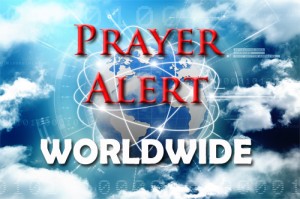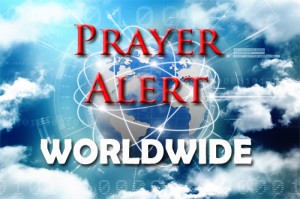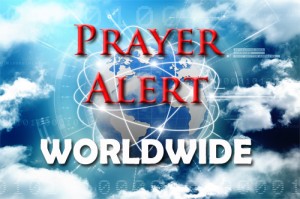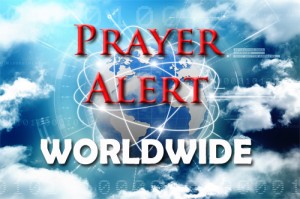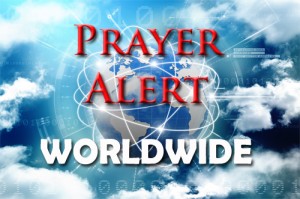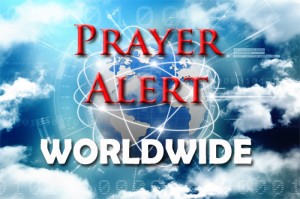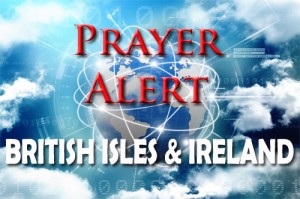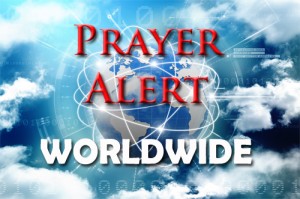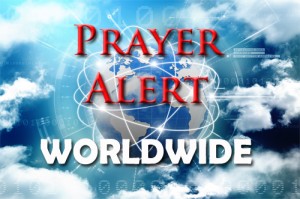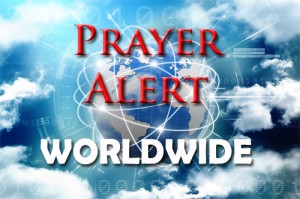Displaying items by tag: Persecution
Iraq: corruption and elections
Vice-president Nouri al-Maliki wants to regain the premiership he lost in 2014, and many believe he is leveraging his influence over the judicial process to marginalise political rivals ahead of the elections on 12 May. Iraq’s savvy and powerful politicians are using judicial, legislative, and procedural means to disqualify their opponents or break up opposing coalitions, especially after candidate lists were filed on 10 February. Such disqualifications undermine the legitimacy of the Iraqi government in ways that accelerate insurgency and negate the military gains the US has made against IS in Iraq. Meanwhile Islamic leaders slander Christians in mosques, leading to further persecution. Government officials, both national and local, have threatened Christians, ‘encouraging’ them to leave the country. Political parties who hinder pluralism also contribute to the persecution of Christians in the public space. See
Cameroon: Christian persecution
‘They threatened to kill me.’ ‘They’ are not jihadist groups, they are A’s family. When A committed his life to Christ in 2000, his Muslim family from the ethnic Kotoko people acted as if he had pointed a challenging dagger at them. The Kotoko take pride in the fact that they are one of the few tribes in their region with no known Christians. A said, ‘When all their spells and curses with the help of the local medicine man failed, they tried to kill me themselves.’ More than once, his family tried to poison his food. One night, strangers kidnapped him and took him to an unknown destination. ‘On the way there, I prayed for God to confuse them so that they could release me. And He did! They just let me go without saying anything.’ A and others face constant insults, exclusion and danger from their families when they become Christians.
Australia: bishop advocates for refugees
The assistant bishop of Melbourne, Philip Huggins, has worked with film-maker Richard Keddie on a video advocating for South Sudanese school students in Melbourne. It says that many of these children are frightened, and asks people to ‘give them a wave and a smile to make them feel welcome’. In the state of Victoria, there have been recent high-profile political and media comments about ‘gangs’ of young Africans, which have resulted in discrimination towards and fear of the community. Hundreds of families have survived a dreadful war and seen millions killed. But they’re frightened again, because of messages spreading hate and fear against innocent children.
Global: attacks, bombings, and beheadings
2017 saw a dramatic rise of terror attacks by nomadic Fulani Islamic herdsmen in Nigeria, who are targeting Christians and trying to drive them out of the territory they claim. Pray for God to help Nigerian political leaders to bring religious hatred to an end, and for His protection and strengthening of Bishop Joseph Bagobiri. IS has been increasingly turning its focus toward Egypt, issuing a chilling warning that ‘a river of blood’ for Christians is coming. Pray that the Christians will be strengthened as they refuse to abandon their faith in Jesus Christ, and that the government will do more to protect them. Al-Shabaab, a Somalia-based terror group, has been attacking Christians and security forces in neighbouring Kenya for years. They are now routinely beheading anyone suspected of being Christian. After IS attacked a church in Pakistan on 17 December, the country is on heightened alert.
North Korea: Christian survival
Every aspect of North Korean life is controlled by the state, which believes that there is no higher authority than Kim Jong-un. Christianity threatens this belief and must be crushed. Tens of thousands of Christians are imprisoned in labour camps, yet the church is growing. There are 300,000 courageous believers, many not even telling their children, who live under constant surveillance by authorities looking for anything that might threaten the regime. There are even rewards of a new home or better job for anyone who helps discover Christians. Every citizen must report to a ‘neighbourhood watch’ system any absence from home, or a neighbour neglecting to clean the portrait of Kim which everyone must have on their walls.
Pakistan: a missionary’s message
‘Nawaz Sharif has been ousted from government several times, but he has returned to Pakistan, leaving his wife in an English hospital dying of cancer. The High Court ousted him on corruption charges, and he is banned from taking any political office; but his party (the major party) have changed the parliament’s constitution so that Nawaz can become its president. They also passed a stricter Islamic law, making it much harder for Christians and other minorities. The present temporary prime minister has little backing. There is no control in the country. Terrorists are crossing back and forward across the border. When US secretary of state Rex Tillerson came to meet Pakistan’s military on the Afghan situation, he was undercut by Pakistan’s government who demanded that he speak to it only. The military is held in favour by much of the populace.’
One month, one church, one prayer
This month Christian organisations are seeking to encourage the Church to pray for fellow believers who suffer because of their faith. Around the world, Christians risk harassment, discrimination, imprisonment and even death simply for trying to live out their faith or worship together. This has become such a significant issue that Release International, Open Doors, Christian Solidarity Worldwide and the Evangelical Alliance have joined together to form the Religious Liberty Commission. The RLC focuses on encouraging Christians to pray for brothers and sisters across the globe who suffer and are persecuted because of their faith. While it enables the member organisations to speak as one voice for persecuted Christians, it does not claim to be the only voice and action group for them, and very much welcomes the fact that others are also doing excellent work in this area (see the next article).
Pakistan: Christians seek answers after murder
On his third day of high school, the parents of 17-year-old Sharoon Masih learned that he had been in a fight and had been taken to hospital. They rushed to the hospital but found he was dead. His school friends said he died in the classroom. Police said that another student at the Punjab school kicked Sharoon in the stomach and that he died of internal injuries. The student charged in his death now awaits trial, but police are not calling the attack a hate crime. Many suspect the teenager was targeted because he was a Christian. Christians are regularly discriminated against in education, employment and housing. Sharoon’s parents want to know what happened and why no-one saved him. He wanted to be a lawyer, and was to start as an apprentice at a lawyer’s office after completing high school. Sharoon’s father has stopped sending his six other children to school because he does not feel they will be safe.
India: persecution in Jharkhand state
Six house church leaders were released on 16-17 October, after being detained for a month on false charges that they had forced Hindus to convert to Christianity. The five men and one woman rejoiced that during their time in jail they were able to share the gospel with fellow prisoners. The arrests occurred soon after state officials in Jharkhand passed the strictest anti-conversion law in India. Local Christians fear increased persecution as a result of the new law. Pray that the six church leaders will continue their work and use their testimony to share the gospel with boldness.
Mali: Christian persecutions
A church leader in Mali reports, ‘Our churches and chapels are now being targeted by extremists, who have told Christians not to gather to pray’. In September and October, extremists ransacked and burned several churches in Mopti region. One congregation who were driven out of the building were told they would be killed if they were seen praying. In 2012, Tuareg separatists and Islamist groups linked to Al Qaeda seized control of northern Mali and declared the region an Islamic state. The new regime imposed sharia law in Timbuktu, including punishments such as amputations for theft. France deployed soldiers to assist the government against advancing Islamists, and a UN force of 13,000 military personnel is now stationed there. Violence continues despite a peace deal with rebel groups. In the first half of 2017 over 42,000 civilians joined those already internally displaced in Mali.
